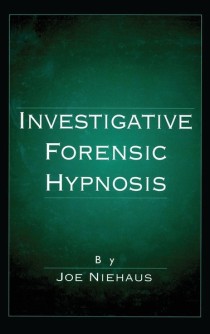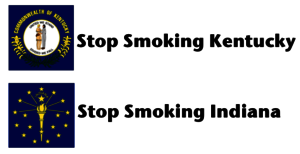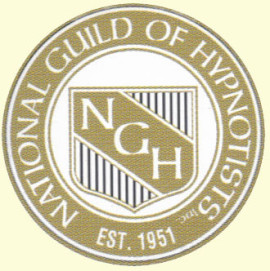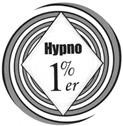
Louisville Hypnosis Academy Blog Archives
BLOG INDEX
Scroll down (below this index) to read posings
HYPNOTHERAPY FOR MENOPAUSE-ASSOCIATED HOT FLASHES
EXPLOSIVE ANGER
IF YOU SMOKE, THERE IS HOPE WITH HYPNOSIS
ANXIETY AND HYYPNOSIS
HYPNOTHERAPY FOR FEARS AND PHOBIAS
DOES ONE SESSION HYPNOSIS WORK?
HYPNOSIS AND STOKE RECOVERY
HYPNOTHERAPY FOR MOOD SWINGS
THE DIFFERENCE BETWEEN MEDITATION AND HYPNOSIS
THE GOOD AND BAD ASPECTS OF STRESS
WHEN COUNTING SHEEP DOESN'T WORK
BARGAIN SHOPPING (FOR HYPNOTHERAPY)
WANT TO LOSE WEIGHT? HERE ARE TEN WAYS THAT HYPNOSIS CAN HELP
HYPNOSIS IN THE CONGRESSIONAL RECORD
CAN HYPNOSIS HELP ME STOP SMOKING?
HYPNOSIS FOR CANCER PATIENTS AND SUVIVORS
HYPNOTHERAPY FOR SYMPTOM RELIEF FOR INDIVIDUALS WITH IRRITABLE-BOWEL SYNDROME AND OTHER GASTROINTESTINAL ISSUES
THE USE OF HYPNOSIS DURING SURGERY
GROWING ACCEPTANCE OF HYPNOSIS BY THE MEDICAL PROFESSIONS
HYPNOSIS VS. STANDARD BEHAVIORAL THERAPY FOR SMOKING CESSATION--REPORT ON A RANDOMIZED INTERVENTION TRIAL
NEW FREE IN-PERSON CONSULTATION PROGRAM ANNOUNCED BY THE LOUISVILLE HYPNOSIS ACADEMY
LOSING WEIGHT NATURALLY WITH HYPNOSIS
FORENSIC HYPNOSIS AND THE CRIMINAL JUSTICE SYSTEM
WHAT HYPNOSIS IS NOT
HYPNOSIS IS A PROVEN METHOD FOR WEIGHT LOSS
HYPNOSIS CAN HELP WITH SKIN PROBLEMS
HYPNOTHERAPY AND STAGE FRIGHT
Scroll down (below this index) to read postings
Hypnotherapy for Menopause-Associated Hot Flashes
December 2015
In North America, about 75% of women suffer from hot flashes associated with menopause, and many of the often recommended treatment options simply do not work well.
That was the conclusion of a double-blind randomized study conducted by the North American Menopause Society (NAMS) and reported in News Medical; however, the study also found that some (but not all) behavioral approaches show promising results in reducing the severity of hot flashes. One of the primary findings of the research was that hypnotherapy was substantially better than most customary treatment approaches. Researchers specifically recommended hypnosis as an effective mind-body approach.
According to the study, several new treatment options (including weight loss, overall stress reduction, and two new medications) may be helpful but recommended that they be used only with caution.
The researchers also found that exercise, yoga, and acupuncture do not work for hot flashes; however, those options may yield other health benefits. It was also found that over-the-counter nutritional supplements that are often touted for their hot flash relieving properties are ineffective as is chiropractic therapy.
Overall, hypnotherapy was the only treatment option for hot flashes that was recommended by the researchers without some degree of reservation; thus, hypnosis appears to be a sound alternative to treatments that are commonly used for hot flashes associated with menopause.
EXPLOSIVE ANGER
November 2015
John was a nice enough guy. He had a family and a good job. But frequently, he would lose control and just blow up. John would become very angry over things that others might consider normal annoyances. Things like getting a phone call from a telemarketer or encountering a rude driver. In recent years, John’s temper had begun to affect all aspects of his life, and he and his family knew something had to be done. That is when a friend recommended hypnosis.
At first John though that hypnosis was some “out there” alternative therapy. The only thing he knew about hypnosis was what he saw on TV and in the movies. So, John decided to talk with his doctor about hypnotherapy, and he was surprised when his primary care physician gave it a sound endorsement.
After just a few hypnotherapy sessions, John and everyone around him recognized a significant change. He was able to handle frustrating situations in a calmer and more mature way. Gone were the explosive displays of exasperation and irritation. He was happier, and remained cool at times that previously would have drove him over the edge.
According to the website Anger-Management-Action, hypnotherapy can “achieve amazing results for many people” (who have difficulty with anger). They strongly suggest to begin the process by seeing a qualified hypnotherapist rather than trying self-administered videos and tapes that can be found on the Internet.
Hypnosis goes right to the sources of the problem: Subconscious thoughts and urges that are often beyond the control of the conscious mind. First, the subconscious mind is encouraged to differentiate between anger producing events that are serious and those that are trivial, and to simply discard insignificant and meaningless matters. Then, the subconscious mind is taught how to handle consequential situations that produce feelings of frustration and outrage in more appropriate ways. That does not mean that after hypnosis a person becomes meek, submissive, and timid. To the contrary, displeasure is channeled and expressed in a more polite and harmonious way but one that is still firm and resolute.
The Louisville Hypnosis Academy has a long history of helping folks who have a significant problem with anger management. If your anger is creating a problem for you and those people around you, speak with a Certified Hypnotherapist at the Louisville Hypnosis Academy. He or she will be happy to recommend a short-term program that could well change your life for the better.
IF YOU SMOKE, THERE IS HOPE IN HYPNOSIS
Special Post
October 2015
This year, about 480,000 Americans will die because they were smokers. That means 4 people will die in this country during the time it will take you to read this brief blog post. Four people who not only forfeited their lives for the sake of inhaling burning tobacco leaves but also who leave behind grieving spouses, children, other family members, and friends. That includes parents and grandparents who will never see their children or grandchildren grow up, graduate from high school and college, and have families of their own. That includes husbands and wives who will never get to enjoy their retirement years together. And, the worldwide figures are even more staggering. In the next 15 minutes, over 170 people will die worldwide simply because they used tobacco.
Okay, so you have tried to stop. You’ve used patches and gum, and you’ve used medication that either did not work or almost drove you insane with the side effects….and, you’ve tried to go “cold turkey.” Nothing worked! Or, if it did, you were only able to stop for a relatively brief time before you started to smoke again. So, you are about ready to throw in the towel and patiently wait for the dreaded diagnosis that is almost certain to come.
But, before you give up, there is hope, and that hope is hypnosis.
The question is, of course, does hypnosis work?
The answer is: YES! it does—as long as you want to quit the deadly habit.
Writing in The Fix (an on line blog for addiction and recovery), Nina Emkin tells of a 90 year old ex-smoker who has been smoke-free for 26 years after going through a stop smoking hypnosis program (Emkin’s article also appeared on the Huffington Post).
And lifelong smoker Luke O’Neil, in an article that appeared in The Atlantic magazine, tells of his own experience of being hypnotized a single time in a group introductory session. Although he did not enroll in the whole hypnosis program because he says that he is not ready to quit, he says that “(since being hypnotized) I just don’t enjoy them anywhere near as much as I used to...”
The bottom line is this:
Hypnosis will likely work for you if you truly want to quit smoking.
A cessation program using hypnosis should include at least 5 sessions (1, 2 or 3 session programs will not likely produce positive and lasting results). This is especially true if you have been smoking for many years.
Choose a hypnotherapist with substantial experience.
While fees are always a consideration, don’t look for the cheapest hypnotherapist—instead, look for the best. Your smoking habit has cost you a huge sum of money in the past and, if you continue to smoke, will cost a huge sum of money in the future (not to mention the related health costs). Now is not the time to look for a “hypnosis bargains.” Go for the best. You will not regret it.
While smoking is indeed a tough habit to break, hypnotherapy has proven results. Through the power of hypnosis and your own subconscious mind, it is very possible simply walk away from tobacco and, as a result, have a longer, healthier, happier, and higher quality of life.
ANXIETY AND HYPNOSIS
October 2015
Anxiety comes in many forms and flavors. It can be very subtle—that little uncomfortable twinge of emotional shakiness, or it can be acute—utter debilitation that affects almost every waking moment. According to the National Institute of Mental Health, significant anxiety impacts 18.1% of the U.S. population or about 40 million adults. Other mental health experts puts those numbers much higher—approaching 30%. Accurate numbers are hard to come by since the lines between high levels of stress and anxiety are often blurred, and anxiety disorders are often misdiagnosed or patients are simply written off by medical and mental health professionals as overly “nervous.”
Anxiety is often described as the fight or flight instinct gone awry, and that link is usually true; however, the more direct cause is often hard to pinpoint. Treatment options range from self-help strategies such as exercise, yoga, and breathing exercises to full-blown interventions with powerful (and often side effect producing) drugs.
A growing number of medical and mental health professionals are recognizing the positive impact that hypnotherapy can have on anxiety—especially the more acute varieties. In the U.S., doctors, psychologists, and mental health counselors often suggest hypnosis to their patients, and more and more mental health professionals are incorporating hypnosis into their practices.
As reported on Fox News, the British Psychological Society (England’s primary professional organization for psychologists) now officially recognizes hypnosis as a proven therapeutic intervention for anxiety and stress.
When seeking a hypnotherapist to provide services for significant anxiety and stress related issues, you should beware of quick fixes. In most cases, one or two sessions of hypnosis are simply not effective. A systematic hypnosis program (such as the 5-Path™ method practiced at the Louisville Hypnosis Academy) consisting of five or more sessions are generally required to produce successful outcomes. The experience level of the hypnotherapist is also an important consideration. Effective hypnosis for anxiety (especially the more significant types) should be administered by a qualified and experienced hypnotherapist. In general, the more experience the hypnotherapist has the better the results.
If you or a loved one has serious issues with anxiety or intense stress, the Louisville Hypnosis Academy provides a free consultation (either in person or by telephone) during which an experienced and highly qualified Certified Hypnotherapist will explain more fully how hypnosis works and will be happy to answer your questions.
HYPNOTHERAPY FOR FEARS AND PHOBIAS
September 2015
A fear is a rather unpleasant emotion that is related to a thought or belief that something or someone is dangerous or may cause harm. A phobia is a more extreme version of fear and is often used to describe an extraordinary fear that is not based on reality—in other words an acute fear of something that actually poses minimal (or possibly no) danger.
The fear emotion is part of our genetic make up and is related to the ancient and primal fight or flight response. That reaction involves both psychological and psychological elements. It includes the release of hormones that prepare us to either stand our ground and fight or escape by running away. Our prehistoric ancestors used the fight or flight response to survive attacks by wild animals or to survive other dangerous situations.
Today, the fight or flight response is not employed by most of us on a daily basis; however, it can still be observed in situations such as escaping a burning building or fleeing from someone who we perceive to be dangerous (like a robber) or other perilous situations.
Fears and phobias are very real and often debilitation to those who have them; however, to others such fearfulness may appear trivial and even humorous. For example, a fear of driving (vehophobia) may seem rather silly to someone who give no particular thought to getting behind the wheel, but to those who have this fear it can lead to being unable to work or travel or to be limited to using public transportation.
Because significant fears and phobias reside in our subconscious minds, they usually cannot be removed by simply using our conscious desire to do so. Usually these fears and phobias need to be addressed where they reside—at the subconscious level of our awareness.
Hypnosis with the help of a skilled hypnotherapist, can provide an effective method of getting rid of unwanted fears and phobias; however, it normally requires several sessions to effect permanent results. Caution should be used if any hypnotherapy program promises positive results in one, two, or three session. Normally it takes approximately five sessions to effect favorable and enduring change.
There are well over 500 different and documented fears and phobias. We have listed below just a few of the most common fears and phobias as well as some less familiar ones.
- Fear of flying
- Fear of heights
- Fear of bridges
- Fear of snakes
- Fear of spiders (or other insects)
- Fear of dying
- Fear of driving
- Fear of buttons
- Fear of dogs (or other animals)
- Fear of snow
- Fear of rain
- Fear of door knobs
- Fear of clowns
- Fear of germs
- Fear of fainting
- Fear of vomiting
- Fear of crowds
- Fear of paper
- Fear of sleeping
- Fear of water
- Fear of flowers
- Fear of being alone
- Fear of bananas (or other fruit)
- Fear of carrots (or other vegetables)
- Fear of light bulbs
- Fear of the color white (or other color)
- Fear of alcohol
- Fear of metal
- Fear of wood
- Fear of clouds
- Fear of the moon
- Fear of the dark
- Fear of dreams
- Fear of belly buttons
- Fear of tall people
- Fear of short people
- Fear of thin people
- Fear of heavy people
- Fear of walking on the sidewalk
- Fear of music
- Fear of laughing
- Fear of crying
- Fear of blushing
- Fear of the smell of garlic (or other smells)
- Fear of cotton (or other fabric)
- Fear of soil
- Fear of women
- Fear of men
- Fear of children
DOES ONE SESSION HYPNOSIS WORK?
August 2015
First, let’s define “one session hypnosis.” That means attempting to solve a problem or issue using a single session of hypnotherapy.
So, does one session hypnosis work? The short answer is NO!…at least not for most people and not for most issues.
When using hypnosis to get rid of an unwanted habit, a problematic fear or phobia, to control anxiety and stress, or to shed those extra pounds (or any of the other major issues that respond favorably to hypnosis), you might be tempted to try one of those one or two session programs that you see advertised.
But…based on over 33-years of experience, the answer is: Don’t even think about it!
And here is the reason: That smoking or other habit, that fear of flying or other fear or phobia, that tendency to be stressed or anxious, or that compulsion to binge on chocolate chip cookies, potato chips or other food or drink (or whatever the problem or issue) probably got imbedded in your subconscious mind over a number of years, and it just stands to reason that it will not be successfully removed from your subconscious mind in a single session of an hour or less.
Although hypnosis is not normally a long term therapy, you must think of it as a process (with the emphasis on process). And…that process generally takes several sessions to produce positive and long term results. The average is about five sessions for most issues, although that can vary a bit.
In order to realign the subconscious mind and to be able to accomplish what you want to accomplish will take some time. Not much time, but more than one or two sessions.
At the Louisville Hypnosis Academy we practice a very advanced form of hypnosis called 5-Path™ Hypnotherapy. It is a highly-respected, scientifically designed and systematic approach to hypnosis, but it is used by only about 1% of the leading hypnotherapist around the world. It is a relatively short process consisting of five specific steps with the end goal being to allow you to accomplish what you want to accomplish and change what you want to change with the results being long term. That means that you won’t have to worry about going back to your old (often destructive) ways.
The reason that more hypnosis professionals do not practice 5-Path™ Hypnotherapy is that it requires must more expensive and time consuming training and much more experience for the hypnotherapist. But, when you are seeking hypnosis services, the depth of positive results are certainly worth a bit more money and the extra time that 5-Path™ Hypnotherapy is known to deliver.
So, don’t be swayed by the temptation of short one or two session hypnosis programs. Yes, they do cost less and, yes, they take less time, but for most folks, they simply do not work well and do not produce the level of long term change when compared to the results of 5-Path™ Hypnotherapy.
For more information about 5-Path™ Hypnotherapy, a consultation with a 5-Path™Certified Hypnotherapist will answer all of your questions. Such consultations (whether by phone or in person) are always free of charge with no obligation of any kind.
By the way, there are a few issues (actually very few) where a one, two, or three session plan may produce the desired outcome. Your 5-Path™ Certified Hypnotherapist will help you determine what specific program is right for you at the time of your free consultation.
HYPNOSIS AND STROKE RECOVERY
July 2015
Hypnotherapy is increasingly being used to improve the quality of lives of individuals who suffer from certain debilitating medical conditions. Among those conditions are compromised movement function following a stroke. Scientific research indicates that sometimes stroke victims develop what is, in effect, a habit of nonuse. In other words, nonuse caused initially by a stroke becomes an unconscious habit over which the stroke patient has little conscious control, and that nonuse continues beyond the time of expected recovery.
A clinical study conducted by researchers from Harvard University and Massachusetts General Hospital in Boston found that hypnosis was an effective treatment for patients with partial paralysis of the upper limbs. The subjects of that study demonstrated an increase in the range of movement, strength of grip, and diminished spasticity when treatment included hypnotherapy. Ancillary benefits of hypnosis were also noted including improved mood, motivation, and general overall outlook for the research participants.
Of course, for stroke survivors, hypnotherapy should be considered as an adjunct to more traditional medical care. However, when administered by a qualified and certified hypnotherapist, hypnosis demonstrates solid and measurable promise in helping to restore movement and the overall demeanor and frame of mind for stroke victims.We observed qualitative improvements in motor function related to increased
range of motion, increased grip strength, and reduced spasticity of the paretic upper limb.
Subjects consistently reported an improved outlook, increased motivation, as well as
greater awareness of and decreased effort to perform motor tasks with the paretic limb.
HYPNOTHERAPY FOR MOOD SWINGS
June 2015
John, a normally happy and outgoing father of two, began to experience significant mood swings. He might start the day with his normal pleasant demeanor and end the day in a profound state of sadness. Sometimes the movement between joy and dismay occurred within minutes. John had seen his family doctor and nothing abnormal was found. He also spoke with a mental health professional who was unable to find a solution that was satisfactory to John. That is when he decided to try hypnosis, and within a few weeks, he returned to his consistently cheery self.
With the help of a well-trained and experienced hypnotherapist, hypnosis can be an effective way of dealing with mood swings that are not the result of a disease.
Hypnotherapy can produce excellent results in two ways:
Finding the root cause of the problem—In the highly relaxed and focused state of hypnosis, insight often can be obtained into what past event or set of events may be causing the oscillating disposition. Sometimes those events, which could have occurred years ago, are hidden or suppressed by the conscious mind, but in hypnosis they are more easily identified, and, frequently, just an understand of the root cause can solve the current problem.
Offering beneficial suggestions—When in the state of hypnosis, an individual is usually much more willing and better able to respond to positive and constructive suggestions for changes in behavior.
While the evaluation and advice of medical doctors and a mental health professionals should always be obtained (especially when very serious mood swings are being experienced and a disease is suspected), hypnotherapy can be a life-changing option that often produces results quickly without the sometimes toxic and unpredictable side effects of many medications.
THE DIFFERENCE BETWEEN MEDITATION AND HYPNOSIS
May 2015
At the Louisville Hypnosis Academy, we are frequently asked to explain the difference between meditation and hypnosis. The explanation is relatively simple. Meditation is a clearing of the mind or providing the mind with a period of rest. Hypnosis, while similar in many ways, involves deep relaxation of the mind for a specific purpose (such as removing an unwanted habit or fear, reducing anxiety, weight loss, improving sports performance as well as many, many other purposes).
Both meditation and hypnosis have grown in popularity over the past couple of decades with many medical and mental health professionals endorsing either or both. For example, a recent article in Get Healthy (a publication sponsored by Norton Healthcare in Louisville) championed the benefits of meditation to improve mood, control blood pressure, enhance cardiovascular function, lessen pain, and boost the immune system as well as having a positive effect on a number of other medical conditions. The article states that meditation should be used in conjunction with standard medical treatment and not as an alternative to it.
Hypnosis can provide similar benefits, and your Louisville Hypnosis Academy hypnotherapist can provide helpful guidance as to how to use meditation as an adjunct to hypnotherapy. While hypnotherapist do not diagnose or treat diseases and illnesses, many people who are undergoing treatment for major and minor medical conditions often benefit from focused hypnotherapy as a means of stress reduction and focused relaxation.
For more information on the many benefits of hypnotherapy coupled with meditation, speak with a Certified Hypnotherapist at the Louisville Hypnosis Academy.
WHEN COUNTING SHEEP DOESN’T WORK
March 2015
When falling asleep becomes difficult and the traditional warm glass of milk before bedtime or counting sheep fails to produce a visit by the sandman, more and more Kentuckians and Hoosiers are turning to over-the-counter and prescription sleep medications. This has led to a wave (some would say a tsunamis) of addictions, emergency room visits, and deaths.
The growing problem of sleeping medication abuse in Kentucky and Indiana has been recorded by the local media, including Louisville’s Courier-Journal, and the national press, including the New York Times.
If getting a good night’s sleep is a problem, your first stop should be your family physician—just to make sure there are no medical issues involved. But rushing to take sleep medications might not be the best resolution to sleeplessness. A group of Swiss researchers point to another option: hypnosis.
As reported in HealthDay News, a sleep study using hypnosis was conducted by the Division of Biopsychology and Methods at the University of Fribourg in Switzerland. It involved 70 women between the ages of 18 and 35. The participant’s time and depth of sleep was monitored by way of brain-wave imaging. Among other results, the scientist reported that hypnosis produced 67% more sleep and a rise of 80% in “deep sleep time” among a significant number of participants. That included an enhancement of “slow-wave” activity during deep sleep that is generally associated with a higher quality sleep and an overall more restful sleep experience.
While no one is suggesting that sleep medications should never be used, but for those who want to avoid the side effects and addictive nature of some chemical sleep aids, hypnosis provides an exciting (or should we say “restful”) alternative.
BARGAIN SHOPPING
(FOR HYPNOTHERPAY)
February 2015
Some folks really get into shopping. Some shop for the best price, others shop for the finest quality, while still others try to balance the two factors—price and quality—looking for the best product at the lowest price.
In their own way, each of those shopping strategies can produce good results depending what you are shopping for and what you are willing to settle for—that is, if you are shopping for a flat screen high definition TV, a new sofa, laundry detergent, or a car.
But…if you are shopping for the professional services of a hypnotherapist, there is only one factor that should be considered: Is the hypnotherapist and the hypnotherapy program the very best available?
Now we are not suggesting that cost should never be a factor—just that it should not be the primary one. Effectiveness of a hypnotherapy program should always come first—period.
In the United States, the fee for hypnotherapy services can be anywhere from $90.00 per session to $750.00 per session (a very wide range indeed); however, most hypnotherapist who practice outside of the mega-city areas (such as New York City, Chicago, or Los Angeles) have fees towards the lower end of that range—usually between $90.00 and $250.00 per session. While it’s not always the case that the highest level of effectiveness and the highest fees go hand in hand, it is, true more often than not. Very frequently there is a direct link between how good a hypnotherapist is and their fee level.
Here is the point. The professional services of the hypnotherapist who is able to help you bring about highly favorable outcomes are simply worth more. After all, results are what you are looking for, right?. Whether you want to stop smoking, lose weight and keep it off, rid yourself of a destructive habit, or once and for all put to rest a debilitating fear (or whatever issue you are working on), accomplishing that goal is what counts. Favorable results are invaluable, so if it costs a bit more to get the job done effectively, paying a higher fee makes good sense.
So, how DO you decide which hypnotherapist and hypnosis program to use? Here are some questions to ask:
Experience—How much experience does the hypnotherapist have overall, and how much experience does he or she have in working with your particular issue?
Education—What level of formal education does the hypnotherapist have. Does she or he have a doctor’s degree? A doctor's degree is not required to be a hypnotherapist, but if your hypnotherapist has one, it stands to reason that it is a major plus.
The program--(this means how your hypnotherapist conducts hypnosis) Is the program based on scientific research and is it systematic? Is the program recognized nationally and internationally? We are not talking here about the hypnosis itself. We are talking about the way that hypnosis is conducted, the number of sessions required, and what is done during each of those sessions. A hypnosis program usually has a name. At the Louisville Hypnosis Academy, we use the highly effective, internationally recognized 5-Path™ program.
How many sessions are recommended? While it may be tempting to go with a program that recommends one, two, or three sessions, such short term hypnosis programs simply do not usually produce favorable and long term results. It should take about five sessions to bring about positive change.
Reputation—Is the hypnotherapist (or the organization he or she is associated with) an Accredited Member of the Better Business Bureau (not just rated by the BBB, but an actual Accredited Member)? Is the hypnotherapist a member of American Association of Professional Hypnotherapists (AAPH) and the National Guild of Hypnotist (NGH)? Is the hypnosis program recommended by outside organizations? Are there numerous client reviews or testimonials posted on the program’s website?
Website—Is the website of the hypnotherapist (or the organization she or he is associated with) professional in appearance? Does the website provide a lot of relevant information about hypnosis?
And…last, but really the most important element—Confidence.
Confidence—After speaking with the hypnotherapist by phone or in-person, do you feel comfortable with her or him? Did they take the time to fully understand you and your issue BEFORE they recommended a program or offered to make an appointment? Did they ask you questions about your issue? Did they seem sincere? Did you feel that they truly wanted to help you? Did they provide you with complete and clear information?
After considering all of these factors, then, and only then, should cost be taken into account. Shopping for a hypnotherapist and a hypnosis program should NEVER be conducted on the basis of fees alone. Alter all, you are looking for professional help that may well have a huge positive influence on your life and health—even the very length of your life. That is not the time to bargain shop.
The often repeated quote, “you get what you pay for” was likely first coined in the fourteenth century and later made even more famous when Kurt Vonnegut used it in his 1963 novel “Cat’s Cradle”.
It certainly applies here. When looking for a hypnotherapist and a hypnosis program, in most cases, you do, indeed “get what you pay for.”
WANT TO LOSE WEIGHT? HERE ARE TEN WAYS THAT HYPNOSIS CAN HELP.
January 2015
The number one New Year’s Resolution in the United States and around the world is to lose weight. It’s a tall order and most will fail. But, there is hope!
Writing in Oprah Magazine, psychotherapist Jean Fain from the Harvard Medical School outlines several ways that hypnosis can help. While keeping Professor Fain’s list intact for the most part, the staff at the Louisville Hypnosis Academy has added some of their own ideas.
Hear are ten of the ways hypnosis can be of benefit when your New Year’s Resolution is to lose those extra pounds:
- The real answer is inside of you already. You may not realize it, but you have the power within you to maintain a healthy weight over the long term, but many are unable to access that potential using their conscious mind alone. Hypnosis allows you to go beyond your conscious awareness and tap into that hidden power. Professor Fain equates this power to learning to ride a bicycle. At first, the task seems daunting, but as soon as you find your balance, it is a skill that you retain for a lifetime. Hypnosis can help you find that innate balance in your eating habits.
- It all begins with believing you can. Since you have likely tried and fails in numerous weight lose programs and plans, you may have given up on your ability to lose weight and keep it off. Hypnosis can renew and strengthen your confidence.
- Along with believing you can maintain a healthy weight, cultivating a positive attitude is vital. Focusing on positive thoughts (as opposed to negative ones) is the key. A good hypnotherapist will help you move from negative ideas to positive ones.
- There is enormous power in augmenting a positive attitude with constructive visualization and imagining. Seeing yourself at a comfortable, healthy, and attractive weight will help take you there. While in hypnosis, your ability to actually picture yourself thin, trim, and healthy is greatly enhanced and that image can be programmed to stay with you. You begin to see yourself at a healthy and attractive weight.
- Remove your craving for fattening and unhealthy foods is much easier using hypnosis. Through the use of symbolism and other techniques, food cravings can be diminished or abolished. For example, visualizing your craving for a double cheeseburger floating out into the ocean (far away from you) might seem somewhat silly and immature, but for you unconscious mind it is powerful symbolism.
- The incorporation of multiple strategies insures the best results. The reduced consumption of high-calorie and unhealthy food, coupled with an increased desire to exercise, tied with the elimination (or significant decrease) of food cravings, augmented with wanting to drink more water can work in concert to produce bold and positive outcomes. A skilled hypnotherapist can help you determine which tactics are the most appropriate for your individual needs and then help activate those strategies through hypnosis
- In two words—moderation and modification. Deprivation is almost never successful over the long term; however gradually modifying behaviors is far less painful and much more effective. For example, if you have a long running habit of having a pint of ice cream each night before you go to bed, reducing it (or modifying it) gradually will likely provide for greater and long erm success as opposed to an abrupt elimination effort. Hypnosis can bring about such logical and measured changes.
- Recognition of the survival instincts. Humans are programed to indulge in the “feast” in preparation for the “famine” syndrome. Hypnosis can assist in helping you harness this powerful drive as opposed to trying (in vain) to overcome it.
- Realization that hypnosis is not a one-shot process. Working out one day at the gym does not produce a sculpted body, and one session of hypnosis does not produce lasting results (no matter what anyone tells you). While hypnosis is not a long-term therapy, it does take about five sessions to produce the desired results (your Certified Hypnotherapist will help you determine the number of sessions that are appropriate for you). He or she will also discuss if learning self-hypnosis techniques would be beneficial for you. Self-hypnosis can often extend and reinforce the benefits of the initial hypnotherapy sessions.
- Responding quickly and appropriately to relapses is essential. Your hypnotherapist will likely look at a relapse as an opportunity—not a failure. Using hypnosis, slips (or full-fledged falls) can be transformed into learning experiences and can help to condition you for the temptations that life always presents.
When it comes to losing weight for the long term, going it alone is not only difficult but often frustratingly ineffective; however, under the guidance of a professional Certified Hypnotherapist at the Louisville Hypnosis Academy, your changes of lasting success are greatly enhanced. Rather than simply trying to overcome those destructive eating habits, hypnosis can help you simply change your mind about them. That allows you to maintain a healthy and attractive weight naturally…and for a lifetime.
HYPNOSIS IN THE CONGRESSIONAL RECORD
December 2014
CAN HYPNOSIS HELP ME STOP SMOKING?
December 2014
The short answer is: It depends.
Whether hypnosis can help you stop smoking depends on whether you want to quit smoking—or not. It’s really that simple. If you truly want to quit the destructive and harmful tobacco habit, then hypnosis, conducted by a qualified and experienced hypnotherapist, can make becoming a non-smoker a reality.
But, there is more to the story. In order to stop smoking for the long term, the stop smoking hypnosis program must be designed for that purpose, and positive and lasting results will normally come only after several private one-on-one hypnotherapy sessions. If you are thinking about a single group session (where many people are hypnotized together at one time), don’t waste your time and money because it likely won’t work, or, if it does, the results will be only temporary. The same can be said about private session programs that include only one or two sessions.
Most smokers have practiced their habit for years, and it will take several hypnosis sessions to reprogram the subconscious mind (Freud called it the “unconscious” mind, but we prefer the more descriptive term “subconscious”). Expecting to undo a habit, that has taken years to form, in an hour or two is simply not realistic. What is needed is a scientifically proven and systematic approach that is specifically designed not only to allow a smoker to stop smoking but make that change is for the long term. An effective stop smoking program that yields long term results can usually be accomplished in about five sessions.
According to an article on the Huffington Post, in recent years, hypnosis for smoking cessation (and hypnotherapy in general) has moved out of the shadows of questionable alternative therapies and is often practiced today by well qualified hypnotherapists who hold advanced degrees and practice in a highly professional environment. The article goes on to report on interviews with a number of individuals who were able to stop smoking with the help of hypnosis when all other smoking cessation methods had failed. The article states that even celebrities have turned to hypnotherapy to end their smoking habit including Hollywood A-listers Matt Damon and Charlize Theron.
In the end, if you really want to stop smoking, the right hypnosis program can help you accomplish that goal and insure the results last a lifetime.
HYPNOSIS FOR CANCER PATIENTS AND SUVIVORS
November 2014
At first glance, it might seem illogical that cancer patients, cancer survivors, and their physicians would consider hypnotherapy as an adjunct to aggressive medical treatment; however, such an initial dismissal would be wrong.
As reported in Mayo Clinic Proceedings, there are a number of ways that hypnosis and hypnotherapy can be used effectively to enhance medical treatment, improve the qualify of life, and, indeed, extend the life of some individuals fighting and living with cancer.
The reports pointed to various studies have demonstrated the following:
Children undergoing chemotherapy experienced a reduction in anticipatory nausea and vomiting and less actual vomiting when hypnosis was used as part of their treatment when compared to children in a control group who did not receive hypnotherapy.
Children undergoing chemotherapy who also received hypnotherapy needed less medication to control nausea and vomiting than those children in the control group who did not receive hypnotherapy.
Children with cancer who learned self-hypnosis techniques were believed to feel more in control of their condition.
Less pain was reported by bone marrow transplant patients whose treatment plan included hypnosis when compared to similar patients whose treatment plan did not include hypnosis.
Women with breast cancer who also received hypnotherapy reported lower pain levels and longer survival time when compared to similar women who did not receive hypnotherapy.
In addition to studies related directly to cancer patients, studies related to the use of hypnosis to control blood flow for those suffering from chronic headaches suggest that hypnosis and self-hypnosis might possibly be beneficial for cancer patients by allowing for more chemotherapy infused blood to be directed to a tumor or by reducing blood flow to a tumor (thus slowing its growth).
On a less clinical level, the well documented ability of hypnosis to control generalized stress and anxiety can be employed to reduce those often debilitating factors that often adversely affect individuals who are being treated for cancer or who have survived cancer.
Overall, cancer patients and survivors might benefit both clinically and non-clinically by including hypnosis, hypnotherapy, and self-hypnosis as an ancillary interventions to their medical treatment.
HYPNOTHERAPY FOR SYMPTOM RELIEF FOR INDIVIDUALS WITH IRRITABLE-BOWEL SYNDROME AND OTHER GASTROINTESTINAL ISSUES
October 2014
The use of hypnosis as a means of intervention for those suffering with irritable-bowel syndrome (IBS) has long been studied. In one such study reported in the Mayo Clinic Proceedings and in The Lancet Medical Journal, thirty patients at the University Hospital of South Manchester (England) with severe IBS were provided with seven sessions of either standard psychotherapy or hypnotherapy.
The psychotherapy group showed a significant (but small) reduction in symptomatic characteristics (pain and distension) and an increase in the feeling of general well-being, but the hypnotherapy group demonstrated a much more significant and dramatic reduction in the same symptomatic characteristics and a much greater feeling of general well-being. In addition, the hypnotherapy group showed a marked improvement in bowel habits while bowel habits were unaffected in the psychotherapy participants. The 3-month relapse rate was also substantially better for those who used hypnosis.
An additional follow-up study by the same researchers, using 35 new patients, showed similar results. A number of other peer-reviewed studies have echoed those results.
Hypnotherapy has also been effective for patients suffering from peptic ulcers, and associated with improved postoperative mobility following gastrointestinal surgeries, and as an adjunct or replacement for anesthetic for liver biopsies and colonoscopies.
THE USE OF HYPNOSIS DURING SURGERY
September 2014
Can you imagine having a major surgical procedure without an anesthetic or with far less pain control medication than normal? That is exactly what happened in a study conducted at the Deaconess Medical Center in Boston.
The study, published in The Lancet Medical Journal and reported by the Associated Press, looked at 241 surgeries of similar types and performed on individuals in similar health and of nearly like ages. These were major surgeries that included opening clogged arteries, procedures involving the kidneys, and surgical interventions associated with tumors.
The study participants were divided into two groups. Both groups were under the care of an anesthesiologist during their surgeries and both were able to self-administer standard medications to control pain. Participants of one group were hypnotized prior to the beginning of the surgery and were guided through pleasant hypnotic visualizations by a hypnotherapist during the procedure. The other group received standard pain management care by the anesthesiologist.
All individuals in the group that was not hypnotized self-used the expected or normal amount of pain medication; however, one-half of the hypnotized group used no medication at all and the other half used only about fifty percent of the expected or normal amount. Moreover, the hypnotized group experienced fewer problems with heart rate and blood pressure during their procedures and their surgeries were completed in significantly less time than the non-hypnotized group (attributed to the fact that surgeons were not distracted by issues such as blood pressure and heart rate).
David R. Patterson, professor of rehabilitation medicine and surgery at the University of Washington said, in reference to the study, “For acute pain…it’s [hypnosis] not arguable any more.”
While standard anesthetics will continue to be used for major surgeries during the foreseeable future, the Deaconess Medical Center study demonstrated the power of hypnosis for the management of significant pain.
GROWING ACCEPTANCE OF HYPNOSIS BY THE MEDICAL PROFESSIONS
August 2014
Twenty-five years ago, hypnosis was often dismissed by physicians and other medical and mental health professionals as unscientific and unproven, but that perception has rapidly changed. Today, a growing segment of the medical and mental health communities is embracing hypnotherapy as an effective alternative to more traditional interventions and those changing opinions are backed by scientific studies and findings.
Staff Reporter Michael Waldholz, writing in the Wall Street Journal, reports that irritable bowel syndrome is being successfully treated using hypnosis at the University of North Carolina and that burn victims are being hypnotized at the University of Wisconsin Regional Burn Center to manage high levels of pain. Stanford University psychologist, David Spiegel, says, “Hypnosis may sound like magic, but we are now producing evidence showing it can be significantly therapeutic.”
At the Virginia Polytechnic Institute (VPI), experimental psychologists are using imaging and brain-wave measuring tools to demonstrate the effects of hypnosis. VPI researcher, Dr. Helen Crawford states, “The biological impact [of hypnosis] is very real and it can be quantified.” Moreover, medical journals, including the highly respected Lancet, are publishing articles and results of studies on hypnosis and hypnotherapy.
There is a growing acceptance of hypnosis and hypnotherapy within the medical and mental health professions. The Louisville Hypnosis Academy (LHA) works with most types of hypnotherapy interventions including pain management, and there is a special section of the LHA website that provides referral information for medical and mental health professionals.
HYPNOSIS VS. STANDARD BEHAVIORAL THERAPY FOR SMOKING CESSATION--REPORT ON A RANDOMIZED INTERVENTION TRIAL
July 2014
One of the primary reasons that many individuals utilize hypnotherapy is to break the highly destructive habit of tobacco use. Smokers who know that they should quit—and desperately want to—are faced with an array of options including self-administered methods (quitting “cold turkey”), medication delivered in various ways (patches, gum, inhalers, pills), devices (such as e-cigarettes) and counseling. The counseling option falls into two categories: standard behavioral therapy and hypnotherapy.
The National Institute of Health, in 2008, reported the results of randomized trial that compared the short-term and long-term outcomes for smoking cessation interventions at the San Francisco Veterans Affairs Medical Center. The study weighed hypnotherapy for smoking cessation against standard behavioral counseling.
For all time periods following the completion of the intervention—7-day, 6 months, and 12 months, hypnotherapy outperformed standard behavioral therapy. While hypnotherapy proved to yield better outcomes for all participating groups, it provided even higher favorable results for study participants who had a history of depression.
NEW FREE IN-PERSON CONSULTATION PROGRAM ANNOUNCED BY THE LOUISVILLE HYPNOSIS ACADEMY
June 2014
When choosing a physician, dentist, attorney, or any other professional, did you ever wish you could sit down and have a one-on-one--heart-to-heart talk with that professional before deciding if you wanted to use their service? And...that you could have that discussion for FREE without incurring any cost or obligation.
At the Louisville Hypnosis Academy, now you can.
All you have to do is contact the Louisville Hypnosis Academy, speak with a Certified Hypnotherapist, and schedule your FREE telephone or in-person consultation. You can simply call our office or request that a Certified Hypnotherapist contact you by filling out a simple online form.
For more information Click Here
At the Louisville Hypnosis Academy, we are here to help you! And now, you can meet with a Certified Hypnotherapist by telephone or in-person without any cost or obligation of any kind.
Call 502-208-4048 today to schedule your FREE telephone or in-person consultation or for more information Click Here
LOSING WEIGHT NATURALLY WITH HYPNOSIS
May 2014
An exciting aspect of losing weight with hypnosis is that often the pounds come off naturally without having to go on yet another restrictive diet. Through hypnotherapy, an overweight client’s attitude towards food can be altered thus allowing for an organic reduction in weight. Because hypnosis promotes a change in a person’s relationship with food, individuals can begin to make more reasonable and healthier nutritional choices, and they become innately more satisfied with less food. Usually, moderation comes quite normally without the feeling of being deprived.
Writing in the magazine Shape, fitness expert Charlotte Anderson describes a 28 year old female who turned to hypnosis when other methods of weight loss had failed. The subject of Anderson’s article is quoted as saying, "The weight dropped off slowly and surely, without huge changes to my lifestyle. I was still eating out numerous times a week, but often sending plates back with food on them! For the first time ever, I was really tasting my food, spending time to take in flavors and textures. Almost ironically, it was as if I had recommenced my love affair with food… only I was able to lose weight doing so. Overall, I found hypnotherapy to be a great way of readjusting my habits and really enjoyed the flexibility and inherent 'sensibleness' of the whole approach."
Over the years, the Louisville Hypnosis Academy has helped many clients lose weight and keep it off naturally.
FORENSIC HYPNOSIS AND THE CRIMINAL JUSTICE SYSTEM
April 2014
Hypnosis is generally associated with losing weight, smoking cessation, controlling pain, enhancing sports performance, boosting academic achievement, and reducing stress among its many other applications. Over the past quarter century, the criminal justice system has also begun to recognize hypnosis as a powerful tool that can be used by law enforcement professionals, prosecutors, and defense attorneys in criminal cases. Forensic hypnosis is the term utilized to describe that application.
In the past several decades, forensic hypnosis has grown from a fringe idea to a mainstream concept. In Joe Hiehaus‘ book, Investigative Forensic Hypnosis (CRC Press, 1998), the author, who, at that time, had 22 years of police work experience and a 14 year background as a forensic hypnotist, makes a strong and compelling case for using hypnosis within the criminal justice system. He also explains the scientific basis for hypnosis and dispels many of the myths and misconceptions that have mainly been brought about by the unrealistic and often comical use of hypnosis in movies and on television. While there are many uses of forensic hypnosis within the criminal justice system, it is most widely employed as a tool to facilitate witness recall and to allay the fears that can often undermine their wholehearted participation and cooperation.
The field of forensic hypnosis began to be conventionalized in 1987 when the U.S. Supreme Court ruled that the use of hypnosis in criminal cases was not only constitutional but also well grounded by scientific research. In a landmark case for forensic hypnosis, the Court ruled in Rock vs. Arkansas (483 U.S. 44) that the use of hypnosis to enhance witness recall was legal and appropriate in American courtrooms. The high court’s decision reversed an earlier Arkansas State Supreme Court ruling against the admissibility of such testimony.
The use of hypnosis to help solve crimes, prosecute criminals, and protect innocent defendants adds to the long and growing list of problems and issues that can be addressed through the professional application of this important modality.
WHAT HYPNOSIS IS NOT
March 2014
I always get a of questions about the definition of hypnosis, and I consistently give the same brief reply: Hypnosis is a heightened state of relaxation and concentration when your subconscious mind (and often the unconscious mind) is open to new ideas and suggestions. That’s pretty simple isn’t it?
But...I think it equally important to understand what hypnosis is not. And here are the two big “nots.” Hypnosis is NOT mind control and hypnosis canNOT make you do something against your will or do anything that you would not normally do otherwise. That is one of the reasons why hypnosis is so safe. While you are in the state of hypnosis, you are fully aware of what is going on around you, and you can rest assured that the only new ideas and suggestions that your mind will retain are those that are in line with the changes that you truly want to make in your life.
Here is an example. If you really want to stop smoking, hypnosis can help reprogram your subconscious mind so that you actually BECOME a non-smoker; however, unless you truly want to stop using tobacco, it just won’t work. Here is another example. If you want to eliminate fatty foods from your diet, but just have not been able to control your urge for a double quarter-pounder with cheese with a large order of fries, then hypnosis can be very effective in helping you WILLINGLY and EFFORTLESSLY steer clear of the golden arches. The desire for that 1500 calorie bomb just won’t be there anymore.
So, while it’s important to know what hypnosis is it is just as important to know what hypnosis is not.
Hypnosis, when conducted by a Certified Hypnotherapist at the Louisville Hypnosis Academy, can very effectively help you make important transformations in your life, but it cannot facilitate those changes unless you really want to make them.
HYPNOSIS IS A PROVEN METHOD FOR WEIGHT LOSS
February 2014
A recent article in USA Today touted hypnosis as an effective method for those individuals who want to lose weight. In the story that appeared in the January 21, 2014, issue, reporter Karen Weintraub described how hypnotherapy had helped Amy Lavier of Watertown, Massachusetts lose 50 pounds after repeated diets and health club workouts had failed.
Weinstraub states, “Unlike the stereotype from old movies, hypnotherapy does not put people to sleep and old pocket watches are not involved. Instead, the client, with closed eyes, is guided through a series of relaxing imagery and ideas.”
Television personality Dr. Oz has also strongly endorsed hypnotherapy as a proven and potent strategy for weight loss as well as for ridding oneself of unwanted habits, behaviors, fears, and phobias.
While hypnotherapy can yield impressive weight loss results, it is advantageous solely for folks who really want to lose weight. So hypnosis should only be used by those who have decided that they are fed up with all of the problems associated with being overweight, and those who are ready to become slim, trim, and healthy.
The weight loss program offered by the Louisville Hypnosis Academy (LHA) also uses the relaxation techniques and the powerful suggestions to the client’s subconscious mind that are described in the USA Today commentary; however, the LHA process goes an important step further. It helps identify and eliminate the underlying emotional cause of the weight gain. This additional measure allows for the long term weight loss that eludes so many people who are trying to shed unwanted pounds.
HYPNOSIS CAN HELP WITH SKIN PROBLEMS
January 2014
When you think of skin problems, such as eczema, acne, dermatitis, and others, you normally think of treatment by a dermatologist and the use of topical or internal medications. And while your physician should be your first stop if you suffer from a skin condition, hypnotherapy may provide an effective ancillary strategy. Hypnosis works to reign in the negative effects of stress that in many cases significantly influences the progression and severity of many dermatological disorders including hair loss due to skin abnormalities.
An article in the May 14, 2013, issue of Family Practice News by Bianca Nogrady titled Manage the Mental Side of Skin Disorders addresses the therapeutic use of hypnosis. In her report, Nogrady quotes Richard D. Fried, MD, Ph.D. of the Yardley Dermatology Associates that is located in Pennsylvania:
"Recent studies in patients with alopecia areata (a type of skin related hair loss) demonstrated that hypnosis promotes excellent regrowth in approximately 50% of treated patients...."
In addition, Dr. Fried’s comments, which originally appeared in Seminars in Cutaneous Medicine and Surgery (a professional journal for dermatologists), state that hypnosis may indeed have other benefits including reduced scratching that is often associated with skin diseases as well as a meaningful improvement in depression and anxiety that often accompany such maladies.
HYPNOTHERAPY AND STAGE FRIGHT
December 2013
Performance anxiety strikes many entertainers from first graders performing in a school skit to international stars appearing on the world stage. An equally wide range of amateur and professional artists have turned to hypnosis and hypnotherapy to help them overcome the often debilitation jitters that is commonly called stage fright.
As reported by MTV News, actress Daryl Hannah employed a hypnotherapist to help her overcome stress and anxiety when she appeared in the play The Seven Year Itch, and according to ContactMusic.com, the award winning British songstress Dido successfully used hypnotherapy to rid herself of crippling fear that threatened her career. Dido is quoted as saying, “I went to hypnotherapy for stage fright...and it completely worked.
Daryl Hannah’s stardom began in 1982 when she starred in the iconic movie Blade Runner. Dido is best known for her 2010 Academy Award nominated song If I Rise from the movie 127 Hours.























































